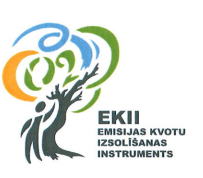An agreement to implement the “Construction of the Ventspils Regional Musical School with Concert Hall of Low Energy Consumption” project was concluded by Ventspils Municipal authority “Komunālā pārvalde”, Ministry of Environmental Protection and Regional Development, and Environmental Investment Fund Ltd on 23 September 2016.
In May 2016 Ventspils submitted a project application for the open tender of the Auctioning Instrument of Emission Allowances “Greenhouse Gas Emission Reductions – Energy Efficient Buildings” published by the Ministry. In total 12 project applications were received by the Ministry, 7 of which were approved in September – the application by Ventspils municipality along with application from six other Latvian municipalities.
The project aims at the construction of a reduced carbon footprint building, ensuring the works are carried out in a sustainable and environmentally friendly manner. The reduction of CO2 emissions will be achieved through the implementation of series of novel solutions such as heat pump system utilising earth’s energy for cooling, high performance heat exchanger recuperating thermal energy, decentralised hybrid aeration system and natural light and blinds’ management system to name a few. All these measures will result in significantly reduced energy consumption amounting to only 25,76 kWh/m2 annually, as opposed to the average of 150 – 170 kWh/m2 consumed by the buildings occupied by the musical school currently.
Ventspils Musical School is the largest regional institution of cultural education operating under the supervision of the Ministry of Culture. The school has not had permanent premises suitable for professional operation, owing to the critical condition of the current buildings, since 2014.
The Musical School will be the only regional project where, after its successful completion, both students of vocational secondary education and students of vocational education will move to new premises. In total 500 students and 100 teachers will move into the new building.
Eligible costs of the project exceed 17.647 million euros, including 15 million euros from the Instrument and 2.647 million co-funding from the Municipality. It is also planned to attract an investment of nearly 11 million euros from the EU operational programme “Growth and Employment” of the European Regional Development Fund, and the Government. It is scheduled that the project will be completed by 22 August 2019.

